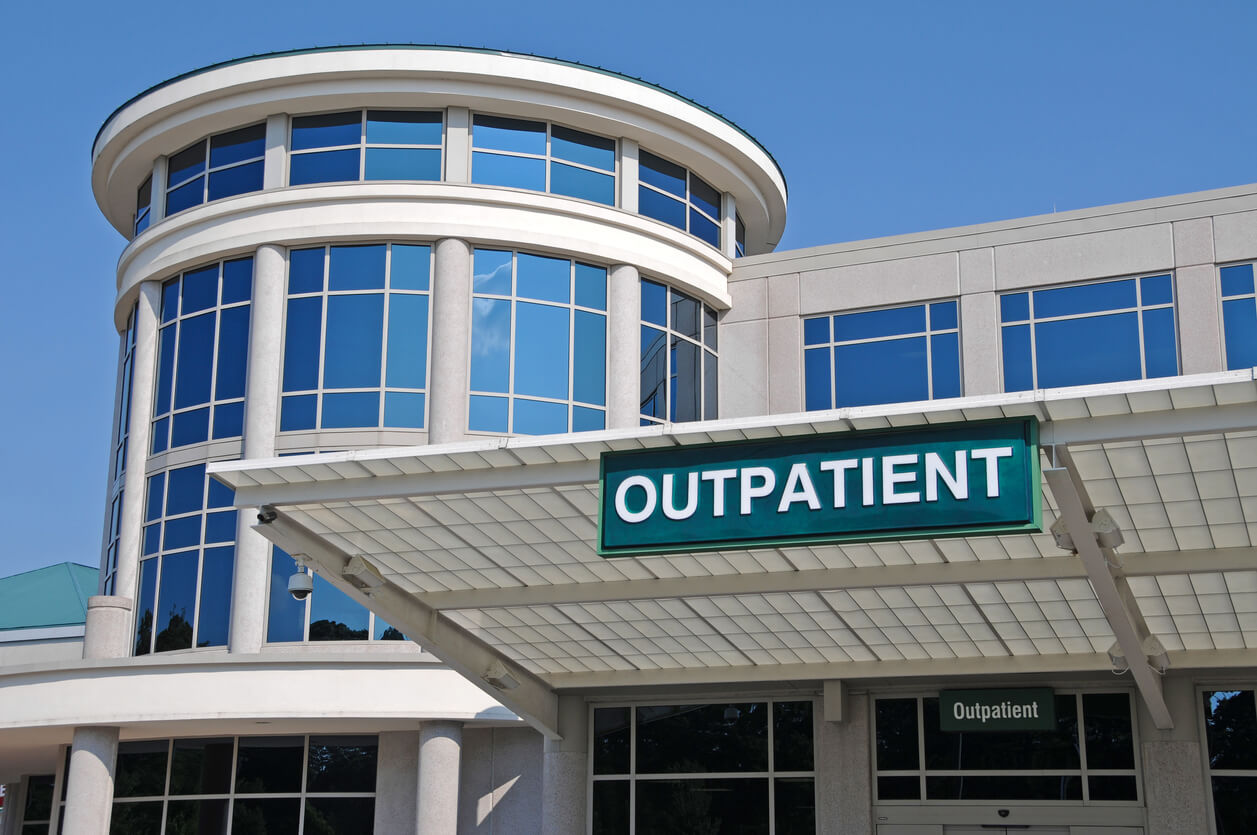When you hear “surgery,” it’s common to think “hospital.” But advances in surgical techniques and tools, combined with the desire to lower the cost of care, has led to an increase in surgeries being performed in facilities outside of a traditional hospital. These facilities are known as outpatient surgery centers.
(Outpatient surgery centers may also be known as ambulatory surgery centers. These terms are often used interchangeably — though there are a few differences — but what matters is that they are both non-hospital facilities where you can go for a medical procedure.)
Inpatient vs. Outpatient
No matter where on your body the procedure is performed, your surgery is considered either “inpatient” or “outpatient”:
- Inpatient means you have to stay in a hospital overnight or longer to recover. Examples of inpatient procedures include childbirth and major heart surgery.
- Outpatient refers to procedures not requiring an overnight hospital stay. (Going for a blood test or an annual physical is considered outpatient.) An outpatient surgery usually takes a few hours or less, and you can go home the same day to recover, which is why outpatient surgeries are often called “same-day” surgeries.
Many procedures that were once inpatient are now offered as outpatient, in some cases because the treatment can be performed in a manner that is minimally invasive, meaning it requires fewer incisions (cuts) than traditional surgery — and in some cases, none at all — and because of the advances in using anesthesia, when needed.
Procedures Available at an Outpatient Surgery Center
Several procedures to treat conditions of the brain and spine may be offered at an outpatient surgery center. These include:
- Spinal treatments including spinal fusion (cervical or lumbar), cervical spine disc surgery, laminectomy, and spinal cord decompression
- Peripheral nerve decompression surgery such as carpal tunnel release and ulnar nerve release
- Radiation surgery for tumors and other conditions
Advantages of Treatment at an Outpatient Surgery Center
Even though your procedure won’t be performed at a hospital, you will still receive the same level of care. In addition, outpatient surgery centers offer advantages over traditional hospitals:
- You recover at home. Most patients would rather spend as little time as necessary in a medical facility. Recovering at home — closer to your family — is more comfortable and convenient.
- Efficient care. Scheduling surgery at an outpatient facility is usually easier than at a hospital, and there’s less risk of your surgery being delayed or postponed due to unforeseen emergency room events. The smaller size of most surgery centers means you’ll likely find it easier to access, park at, and find your destination within the building than you would at a large hospital. In addition, a study concluded that surgery center patients spent 25 percent less time undergoing outpatient surgery than hospital patients1.
- Costs are less. Outpatient surgeries tend to cost less than inpatient surgeries, and that’s even before factoring in the money saved by not having to stay at a hospital overnight. One study determined that outpatient surgeries cost up to $1,000 less than similar surgeries performed as inpatient procedures1.
- Reduced risk of infection. Infection rates following outpatient surgery are substantially lower than the rates for inpatient surgery2, for reasons including:
- Hospitals are larger than outpatient facilities, with a wider range of patients and visitors.
- Patients spend much less time at an outpatient surgery center than at a hospital.
- The procedures performed at an outpatient surgery center are less likely to be “open.” Open surgeries, compared with minimally invasive procedures, result in more cuts on your body (which are sites for infection) and longer recovery times in the hospital and at home (making you more vulnerable to infection).
Are You a Candidate for Outpatient Surgery?
Several factors will determine whether your surgery can be performed at an outpatient surgery center. Your surgeon will review your medical history as well as your age, condition, and the procedure recommended to treat it.
Make an Appointment with Dr. Woodall Today
As an experienced and highly trained expert in procedures related to the brain, spinal cord, peripheral nerves, and vascular system, Dr. Woodall provides the latest advances in surgical neuroscience care. Contact our office today.
